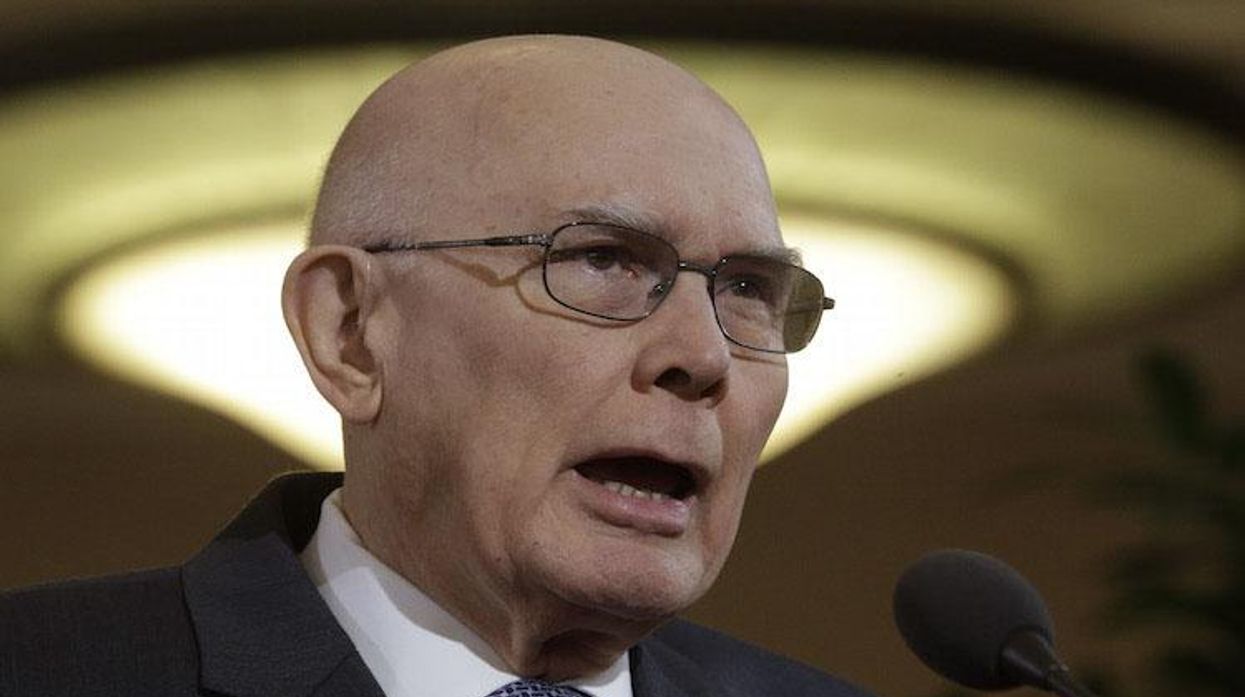Apostle Dallin H. Oaks, second in line to the presidency of the Church of Jesus Christ of Latter-day Saints and a former Utah State Supreme Court justice, told a gathering of believers that renegade Kentucky clerk Kim Davis is abusing the principle of religious freedom to justify her anti-LGBT stance, and urged conservative activists to stop trying to overturn LGBT nondiscrimination laws.
Davis infamously refused to issue marriage licenses to gay and lesbian couples despite being ordered to do so by a federal judge and was sent to jail in early September for contempt of court. Many far right politicians and religious activists have championed the lawbreaker's cause.
Government officials "are not free to apply personal convictions -- religious or other -- in place of the defined responsibilities of their public offices," Oaks told the group, according to The Salt Lake Tribune. "A county clerk's recent invoking of religious reasons to justify refusal by her office and staff to issue marriage licenses to same-gender couples violates this principle."
Oaks's speech, titled "The Boundary Between Church and State," came at the Second Annual Sacramento Court/Clergy Conference yesterday. The LDS church has remained silent on the controversy until now, but Oaks's high ranking position as part of the Quorum of the Twelve Apostles could be inferred to be the church's position.
"Believers should acknowledge the validity of constitutional laws," Oaks told the conference attendees. "Even where they have challenged laws or practices on constitutional grounds, once those laws or practices have been sustained by the highest available authority, believers should acknowledge their validity and submit to them."
Oaks urged the gathering to moderate their stance on religious freedom and opposition to secular laws in favor of LGBT rights and other hot-button social issues. The goal, he said, is a balance between religion and government. He said believers need to find a "center path" with non-believers.
"Parties with different views on the relationship between church and state should advocate and act with civility," Oaks said. "We all lose when an atmosphere of anger or hostility or contention prevails. We all lose when we cannot debate public policies without resorting to boycotts, firings and intimidation of our adversaries."
"On the big issues that divide adversaries on these issues, both sides should seek a balance, not a total victory," Oaks advised. "For example, religionists should not seek a veto over all nondiscrimination laws that offend their religion, and the proponents of nondiscrimination should not seek a veto over all assertions of religious freedom."




































































Charlie Kirk DID say stoning gay people was the 'perfect law' — and these other heinous quotes